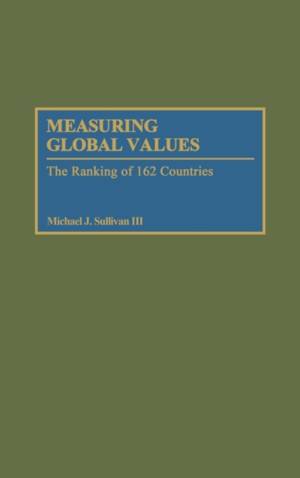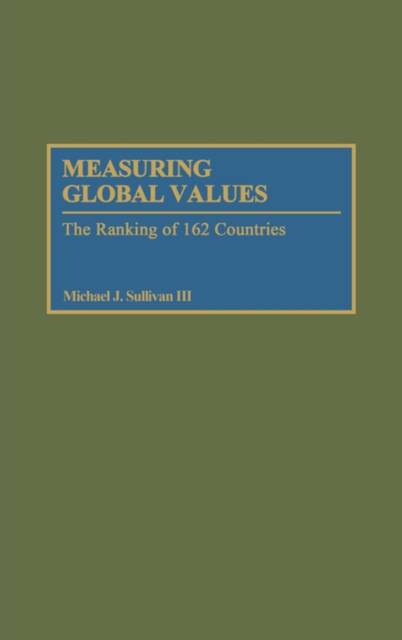
- Retrait gratuit dans votre magasin Club
- 7.000.000 titres dans notre catalogue
- Payer en toute sécurité
- Toujours un magasin près de chez vous
- Retrait gratuit dans votre magasin Club
- 7.000.0000 titres dans notre catalogue
- Payer en toute sécurité
- Toujours un magasin près de chez vous
140,95 €
+ 281 points
Description
Measuring Global Values is a major book that represents an enormous research effort. The book enables careful and systematic comparisons over time and across space as to whether a society is improving or losing ground. . . . It provides world order scholars with a fully elaborated framework for future research. . . . [Sullivan's] book is certain to be the foundational work for future developments relating to normative assessment. Richard Falk Princeton University
This volume profiles 162 countries using as a basis for comparison more than a hundred indicators measuring how each country reflects 5 global values: peace, economic well-being, ecological balance, social justice, and political participation. The use of data-based management software systems for the collection of information results in a broad-based analysis which yields thoroughly documented conclusions and affirms the five values as appropriate evaluative tools. Introductory material outlines the methods used in the study, defines the measurement criteria, and identifies the study's objectives. Each of the five subject areas is then addressed separately, its findings supported by numerous tables and excerpts, and its data supplemented by a bibliography at the end of each chapter. Students of political science as well as global policy scholars will consider this unique application of current technology to the examination of global values a significant contribution to literature on the subject.Spécifications
Parties prenantes
- Auteur(s) :
- Editeur:
Contenu
- Nombre de pages :
- 440
- Langue:
- Anglais
Caractéristiques
- EAN:
- 9780313276491
- Date de parution :
- 18-07-91
- Format:
- Livre relié
- Format numérique:
- Genaaid
- Dimensions :
- 156 mm x 234 mm
- Poids :
- 793 g

Les avis
Nous publions uniquement les avis qui respectent les conditions requises. Consultez nos conditions pour les avis.






